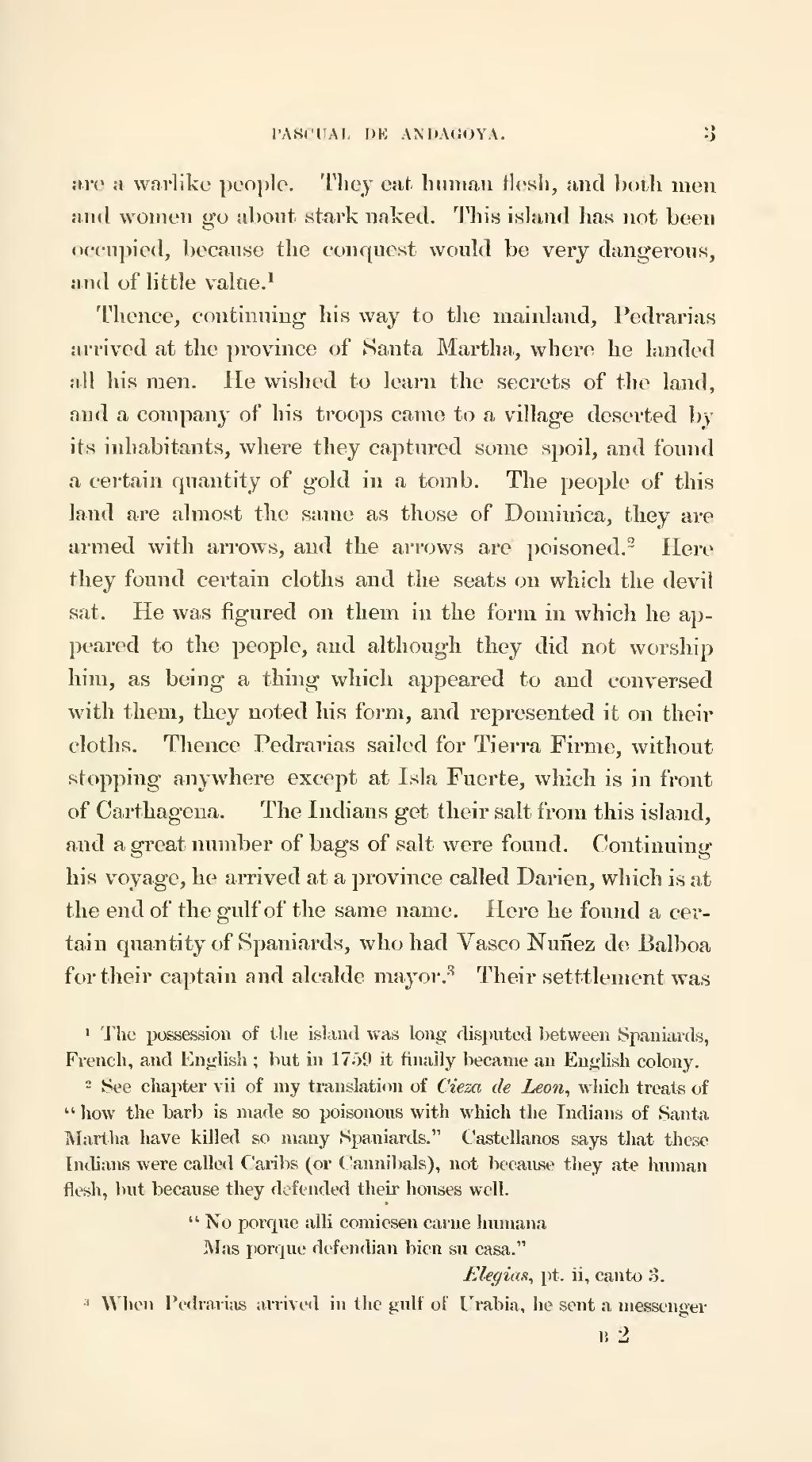are a warlike people. They eat human flesh, and both men and women go about stark naked. This island has not been occupied, because the conquest would be very dangerous, and of little value.[1]
Thence, continuing his way to the mainland, Pedrarias arrived at the province of Santa Martha, where he landed all his men. He wished to learn the secrets of the land, and a company of his troops came to a village deserted by its inhabitants, where they captured some spoil, and found a certain quantity of gold in a tomb. The people of this land are almost the same as those of Dominica, they are armed with arrows, and the arrows are poisoned.[2] Here they found certain cloths and the seats on which the devil sat. He was figured on them in the form in which he appeared to the people, and although they did not worship him, as being a thing which appeared to and conversed with them, they noted his form, and represented it on their cloths. Thence Pedrarias sailed for Tierra Firme, without stopping anywhere except at Isla Fuerte, which is in front of Carthagena. The Indians get their salt from this island, and a great number of bags of salt were found. Continuing his voyage, he arrived at a province called Darien, which is at the end of the gulf of the same name. Here he found a certain quantity of Spaniards, who had Vasco Nuñez de Balboa for their captain and alcalde mayor.[3] Their settlement was
- ↑ The possession of the island was long disputed between Spaniards, French, and English; but in 1759 it finally became an English colony.
- ↑ See chapter vii. of my translation of Cieza de Leon, which treats of "how the barb is made so poisonous with which the Indians of Santa Martha have killed so many Spaniards." Castellanos says that these Indians were called Caribs (or Cannibals), not because they ate human flesh, but because they defended their houses well.
"No porque alli comiesen carne humana
Mas porque defendian bien su casa."Elegias, pt. ii., canto 3. - ↑ When Pedrarias arrived in the gulf of Urabia, he sent a messenger
